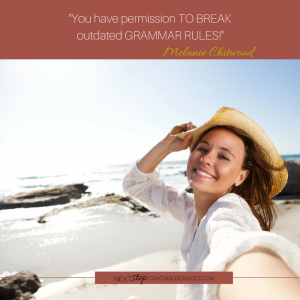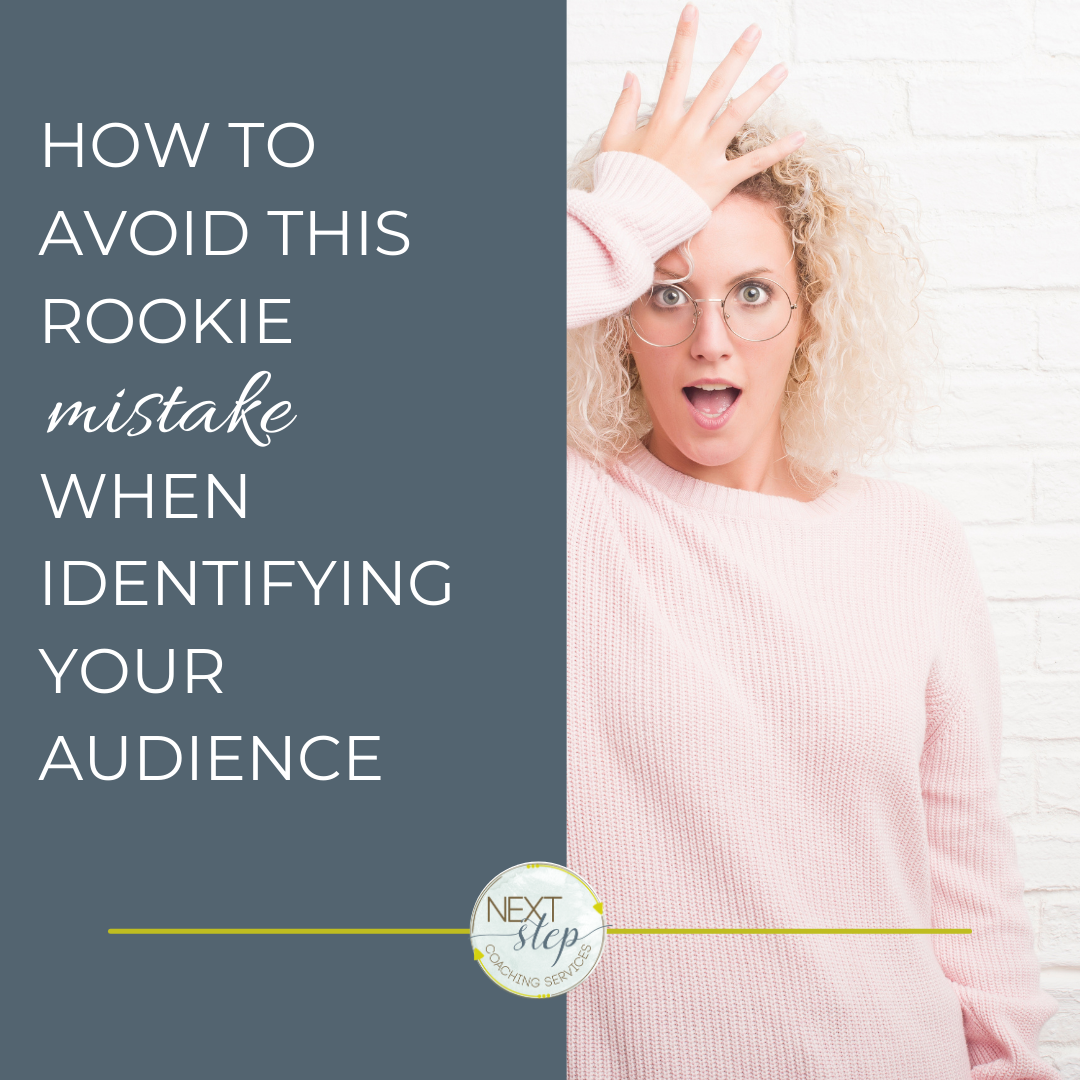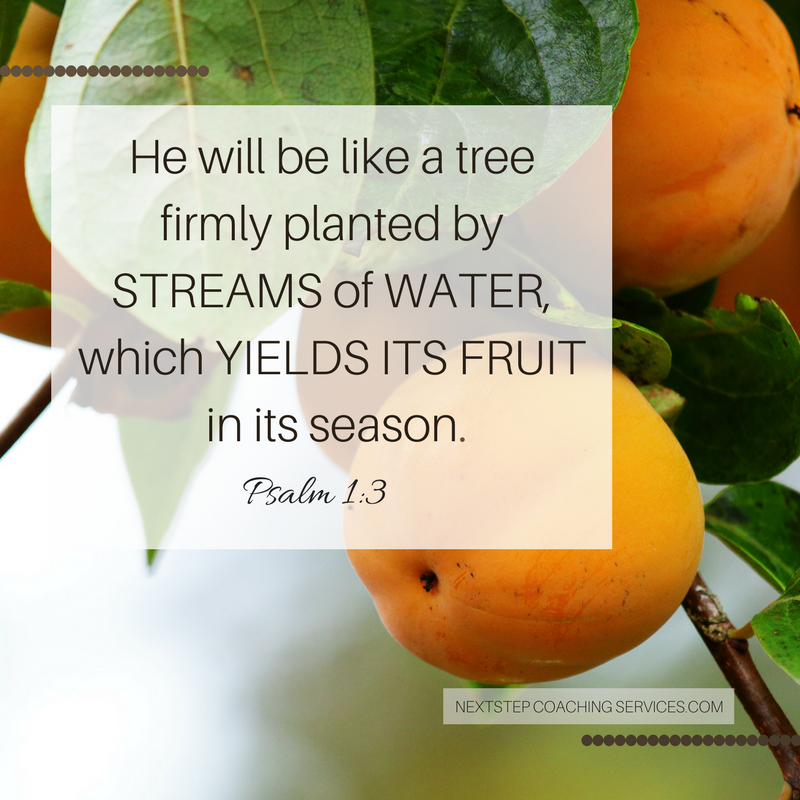Grammar Rules to Break: Part 1
Today we’re looking at two grammar rules to break. Because today’s writing tends to be more casual (yes, that’s a generalization), these two grammar rules can be broken.
The first rule to break:
Write in complete sentences. Avoid sentence fragments.
A complete sentence includes both a subject and a verb, resulting in a complete thought, such as in the following sentence:
- My dogs Lucy and Stella ran out the front door when they heard another dog barking. They ran away before I could grab them.
The first sentence is complete with subject Lucy and Stella and verb ran. The second sentence is a complete sentence with subject they and verb ran.
A sentence fragment does not include both a subject and a verb. Look at the following:
- My dogs Lucy and Stella darted out the front door when they heard another dog barking. They ran. And ran. And ran. And ran.
Do you see the fragments? The words “And ran” create a fragment. It’s missing the subject.
Why do we break the grammar rule by using sentence fragments? Mainly for emphasis. Each fragment emphasizes that their running went on and on.
Here’s another example from Proverbs 31 Ministries’ author and speaker, Suzie Eller.
So, out we went! I don’t usually equate adventure with mud, but that’s what greeted us. Lots and lots of slippery, thick mud. Mud that sucks your shoes in and won’t let go. Mud that pulls you in up to your knees. Mud that tries to throw you off narrow paths into the cascading water below.
Suzie Eller, blog post, March 29, 2018
Do you see the sentence fragments in the above paragraph? The sentence fragments are the group of words beginning with lots and then each phrase beginning with mud. Dividing the various forms of mud into fragments makes me focus on the distinct aspects of the mud. These fragments work beautifully in this paragraph to create emphasis.
The second rule to break:
Don’t use a conjunction at the beginning of a sentence.
Some common conjunctions are but, and, so, for, or, yet.
The following sentences follow the standard grammar rule to use conjunctions as connecting words.
- I carried my backpack but took out several water bottles because they were too heavy.
- We hiked down the mountain, and then we crossed the creek.
Conjunctions are defined as connectors, so it makes sense to see them used to connect phrases or sentences, as they do in the above examples.
However, most style books agree it’s acceptable to start sentences with conjunctions, despite what you may have learned in the past.
Here are some examples of beginning sentences with a conjunction.
- But he never told me where to find the key!
- And she talked five minutes straight about her love of horseback riding.
- Rachel Hauck is one of my favorite novelists. So I plan to buy her new book immediately.(Note this also could also be written: Rachel Hauck is one of my favorite novelists, so I plan to buy her new book immediately.)
Notice no comma is needed after the conjunction beginning the sentence. And, by the way, I disagree with my computer’s grammar checker that always tells me to put a comma after so (has anyone else been bothered by that?), but that can be up to you about following what your grammar checker tells you.
We find one exception to this no-comma-needed rule when it comes to using so at the beginning of a sentence.
Read the following sample:
- So, what did you think of the movie?
In this sentence so is used as an introductory remark, a practice that has become common in spoken English and now the written word. As an introductory remark, so needs to be followed by a comma.
Give yourself permission to break outdated grammar rules when its appropriate for your writing.
Do you agree or disagree with breaking these grammar rules? I’d like to know!
~ Melanie
If you’re unsure of your knowledge of grammar or punctuation rules, I can help you! As a writing coach and editor, I offer affordable services to finetune your writing.
I work on blog posts, devotionals, books, Bible studies with writers of all skill levels.
Fill out the request for free conference call (click here), and we can talk about how I can help you in your writing process.







Melanie thank you for this timely post! I’m working on my masters degree, so I write academically quite frequently for my coursework. But that’s not how modern readers want us to communicate with them on a daily basis. Your post gave me permission to break some rules if it helps readers hear my voice. Thank you. Love this!
Hey Chrissie – Thanks for the encouraging words! I am a former high school teacher,so I’m still in the process of learning to write more coversationally too. Glad it helped!
Ahhhh, this makes me feel so good. LOL! I’ve been breaking those two rules from time to time in my writing and every time I cringe because I know it’s not “supposed” to be that way. But this post gives me permission. (See, I just broke a rule!) Thanks, Melanie! I enjoyed this post!
Such an honest response – thanks! Sometimes it’s fun to break the rules, at least these rules! I don’t always break them…just at times when it makes my writing better! Glad you liked it!
Yes!
These are the rules I break most often in my writing. My ‘voice’ tends to be conversational – I want the feel to be as if we’re sitting across the table having coffee together. That means, sometimes, my sentences aren’t exactly proper.
A writing teacher once explained that the purpose of grammar was clarity more than rules, so I’ve always felt that as long as my message was still being clearly understood, I could take some risks.
Thank you for making me feel like I have permission to keep writing this way!
Hi Jaime – I like that guideline of grammar serving the purpose of bringing clarity. Thanks for stopping by!
I like to start sentences with conjunctions and connectives so my sentences aren’t all the same length.
I know what you mean about the annoying advice from the grammar checker about “so”. And sometimes I like to use “over and over” or “again and again” for emphasis, but the grammar checker doesn’t like that either. It tells me to use “repeatedly” instead.
Thank you for these tips! They help me breath a little.
Yay! You agreed about the so! I like what you said about using the conjunctions to make your sentences varied – good point! Thanks for stopping by!
I absolutely agree with breaking grammar rules! It makes me feel like I am talking to the person instead of just reading. Obviously we don’t always talk in perfect grammar! Thanks for the permission!
Thanks, Deanna, for stopping by!
How do I feel about breaking grammar rules? I enjoy breaking grammar rules! The problem is that I tend to break the ones, which should be honored 🙂 I will take the time to print your blogs on grammar, Melanie. I need them to be easily accessible!
Charla, You made me laugh. Good idea to print!